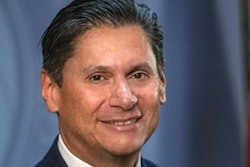Graduate degrees can offer a chance at high-income careers, but the rising costs of attendance have increasingly led to unequal outcomes, with many, particularly minoritized populations, swimming in debt years after graduation.
That’s why researchers at the Center on Education and the Workforce (CEW) at Georgetown University have released a new report, "Graduate Degrees: Risky and Unequal Paths to the Top." It proposes a transparent analysis of graduate degree earnings potential to inform loan distribution, repayment, and potential students as they consider taking the next step in their postsecondary journey.
“Graduate degrees carry significant risks because the costs of a graduate education have tripled since 2000, and there’s significant amounts of debt, particularly under Grad PLUS Loan programs, without sufficient information or context whether or not the investment will pay off,” said Artem Gulish, senior federal policy advisor at CEW and one of the authors of the report.
 Artem Gulish, senior federal policy advisor at CEW and one of the authors of the report.
Artem Gulish, senior federal policy advisor at CEW and one of the authors of the report.
Yet the research reveals insufficient data collection on graduate programs, thanks in large part to the need to protect the privacy of students in smaller programs. In studying master’s degree programs, CEW researchers found earnings data for only 23% of programs, and professional degree earnings data was only available for 29% of programs.
Available data do indicate an alarming trend. Forty-one percent of master’s programs and 67% of professional degree programs would not pass CEW’s proposed debt-to-earnings tests. Notably, among master’s degree programs, 180 social work programs, 176 student counseling programs, and 162 teacher education and professional development programs failed the debt-to-earnings tests. These “socially valuable professions” often do not pay as much, said Gulish, which is why CEW proposes that federal and state government subsidizes graduate education in these fields, reducing the overall amount borrowed.
The few doctoral degree programs studied showed that even a doctoral degree in law did not pass the debt-to-earnings threshold test.















